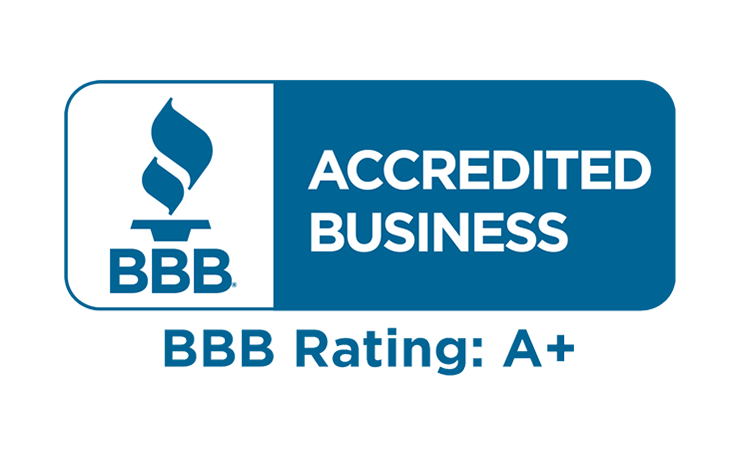Sellers
Magna Capital Group, Inc understands the frustration of selling a home in the current real estate market. It is important to choose an agent specializes in your area who stays current on the real estate trends. Not only does your agent need to be educated in the market but they need to be best suited to meet your specific needs. We can ensure you that the right buyer for your property can easily find your listing. We are an Internet based company so we are always up to date on the latest online marketing tools for your home. Today 90% of buyers begin their home search on the Internet. Your listing will be featured on your and Realtors webpage, our website, as well as, an additional local and national sites.
Finding quality professional assistance, understanding the current real estate market, and preparing your home for potential buyers are some of the topics home sellers should address. This section provides helpful information regarding the home selling process as well as useful tips on how to get started.
The Selling Process:
Professional Assistance
Selling a home can be as challenging as buying one. A number of questions may arise:
• How quickly will my home sell?
• Will people like how it looks?
• Will someone pay what I believe it is worth?
• What do I do if my home does not sell?
Hiring a real estate professional can help ensure that the home selling process is a successful, enjoyable experience.
What To Expect From A Real Estate Firm
• Reputation for honesty, integrity and fairness
• Professional standards and support for agents
• Broad, consistent market coverage
• Complete range of homeownership services
• Online technologies to simplify your home search
• Commitment to customer satisfaction
What To Expect From A Real Estate Professional
• Legwork to help complete the transaction
• Expert guidance through a complex process
• Vigilance for market dynamics
• Insight about homes and communities
Key Factors in Finding the Right Real Estate Professional
• Research: Gather and review information anonymously to find good candidates and firms
• Screen Agents Confidentially: complete a Help Selecting a Sales Associate form online (we will work with you to identify an agent that meets your needs- no agent will be informed or contact you unless you request it)
• Interview Agents: Talk with several candidates to assess their capabilities and working style
• Speak with Managers and References: Talk to the office manager and references to confirm your findings
• Review the Firm: Understand what value the firm delivers in support of the individual agent
• Define Expectations: Be sure that the agent understands what you expect, and is eager to deliver
Once you’ve found the right firm and real estate professional to represent you, they can help you determine the value of your home and prepare it for sale.
Home Values
Real estate professionals use a Comparative Market Analysis (CMA) approach to assess a home’s market value: a well-executed CMA provides a sound basis for a home value discussion. Ultimately, you must decide the price to ask for your home. Regular feedback from the listing agent will provide information about revisiting the pricing strategy, if the asking price does not generate the desired offers.
A CMA Will Include Comparable Property Information:
• Sales closed within the last 3-6 months
• Properties currently under agreement
• Active listings
• Withdrawn and expired listings
And A Range Of Values Based Upon:
• Neighborhood
• Age of property
• Conditions of property
• Features of property
With A Marketing Plan:
• Tailored to your property
• Detailing the specific services provided
A homeownership professional specializing in the local market is best qualified to give you an accurate assessment of your home’s current market value, and to help balance market realities with your dreams, allowing you to establish the most effective marketing program, including an asking price that generates active buyer interest.
Home Preparation
Tips for Showcasing Your Home For Maximum Potential
Exterior:
• Keep lawn trimmed and garden areas neat. Remove clutter and toys
• Remove leaves, snow and ice from walkways and steps
• Clean the front door. Repaint or stain if necessary
• Check fences for loose posts, slats, and pickets
Interior:
• Replace dim light bulbs. Make sure fixtures are clean
• Keep windows clean and coverings open
• Have carpets cleaned
• Brighten interiors with a fresh coat of neutral paint
• Organize closets, attic, basement, and garage
• Keep walking areas clear
• Thoroughly clean sinks, oven, stovetop, refrigerator, and floors
• Remove all unnecessary articles and appliances from countertops
• Remove all pictures and magnets from refrigerator
• Keep all cabinets and closets neat and well organized
• Make necessary repairs to appliances. Repair leaky faucets
• Polish bathtubs, toilets, showers, sinks and mirrors
• Check/repair caulking around bathtubs, showers, sinks and tile
Home Marketing
Competition and advances in technology have driven innovation in the way homes are marketed.
Key Factors to Consider
• What firm offers the best marketing program?
• How effectively, and of what quality, is the firm’s online exposure?
• What price will you set for your home?
• How does the agent propose to maximize your home’s appeal?
Marketing Support
An effective marketing program takes a comprehensive approach. It considers the ways consumers learn about available homes, and incorporates valuable, innovative elements.
Quality Online Exposure
Your property can be included in a database of all available properties, called the Multiple Listing Service (MLS). All
MLS data reaches consumers around the world, thanks to the Internet. The effectiveness of online marketing is a function of how much exposure a property receives and how well it appears. You can realize substantial exposure for your property online: make sure it is quality exposure.
Maximize Your Home’s Appeal
To market your home successfully, it should be prepared to show all of its potential. Your listing agent can help you emphasize the positive aspects of your home and maximize its appeal.
The Offer Evaluation
The Formal Offer
Offers must be in writing, signed and dated by all sellers, and include the following:
• Offer Price: how much you are agreeing to pay
• Expiration Date: when the offer expires, if not accepted
• Closing Date: when you can take ownership, including elimination of all contingencies
• Deposit: the amount you will place into an escrow account to secure your offer (typically 5% – 10% of the offer price)
• Contingencies (if any): such as mortgage financing and inspections
This is only an overview; how an actual Offer to Purchase is submitted and progresses through a transaction varies from state-to-state, and often from town-to-town.
Considering An Offer
Your listing agent will present offers to you. All terms of the offer should be considered, including the asking price, contingencies, local market dynamics, and your goals. In a soft market, you may see few offers, or offers significantly below your asking price. If homes are selling quickly, you may receive multiple offers near – or exceeding – your asking price. As a seller you are under no obligation to accept any offer, even those at or above the asking price, although you must review all offers submitted.
The seller has the following options when considering offers:
• Accept the offer as proposed
• Reject the offer and return the deposit
If you decide to counter-offer, negotiations will continue until all terms are agreed upon (or, because the original offer was not accepted as submitted, either party may withdraw from the negotiations, at which time the deposit should be returned). Until the offer is accepted, the buyer may withdraw the offer and you may entertain other offers. Once the offer is accepted, the home inspection process begins, after which the parties proceed to execute the purchase contract (typically within 5-10 days), and begin the closing process.
Additional negotiations may ensue if inspections uncover unanticipated issues and costs. As these inspection findings would constitute a change to the terms as agreed upon, you have the right to refuse or accept any change requests.
[Note: verbal agreements regarding the sale of real estate are generally not enforceable, until agreed to in writing by all parties.]
The Closing
What to Expect In The Days Before Closing
Closings usually occur thirty to ninety days after a signed Purchase & Sales Agreement. In the period leading up to closing, the sellers and their homeownership service providers are normally focused on preparing for the closing, which would include making the house available for inspections, preparing the deed, and moving.
The home sellers should also begin planning to move their personal goods.
What to Expect At Closing
All parties will be present or represented at the closing for final review and signing of papers. Closings are administered by a Closing Attorney or Settlement Agent. If you cannot be at the closing, alternative arrangements can be made, which typically involve signing papers in advance, and/or granting Power of Attorney to your representative.
All closing expenses will be discussed in advance of the closing, with the closing attorney or settlement agent, as the final figures are prepared. You will be asked to sign the deed and any other papers that the lender, and/or other interested parties, may require. If the buyer is financing the purchase through a lender, the lender’s attorney will often be present, in order to review documentation and protect the lender’s interests. At conclusion, the lender’s attorney will record the new deed and mortgage, and discharge all previous obligations of the seller.




